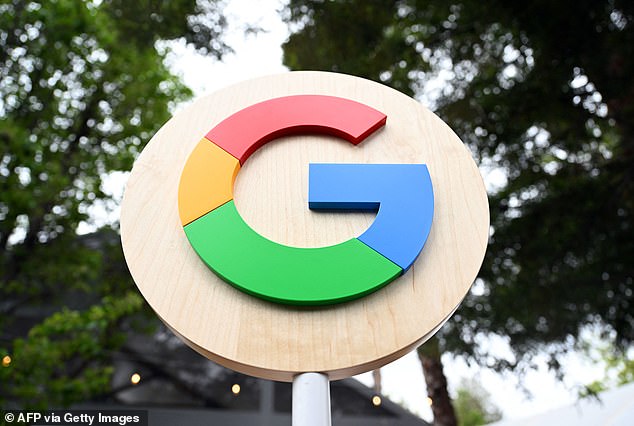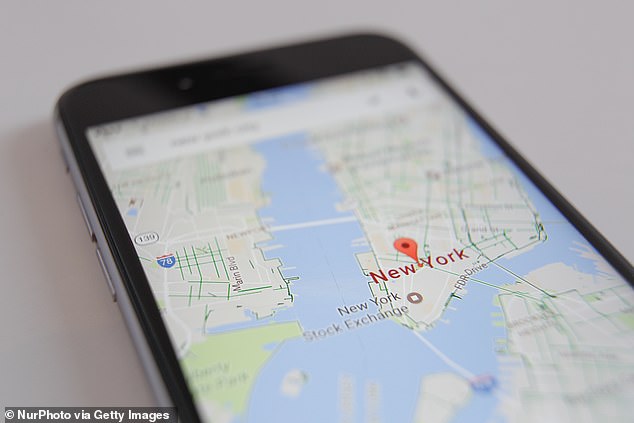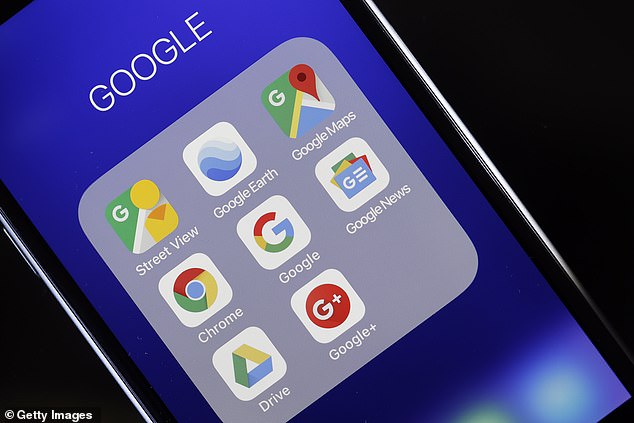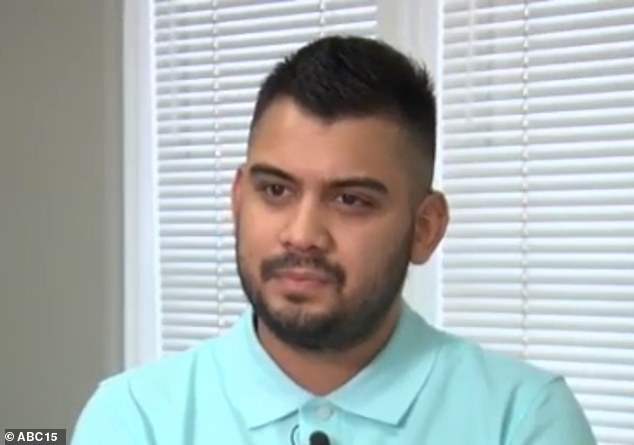Google will change its Maps app so that it can no longer access users’ individual location history and cut off its ability to respond to controversial ‘Geofence’ search warrants
Google has announced new updates to its Maps app, including the ability to let users delete their location history.
The move is being welcomed in response to the increasing number of 'Geofence' search warrants demanded by officials to identify witnesses and suspects involved in crimes.
The the company said yesterday that users who have location history enabled will soon have their data stored directly on their devices instead of on Google's servers. This would prevent Google from seeing their history.
Although the option to keep your location history is already disabled in the factory settings, users with settings enabled can delete information or disable the setting completely at any time
Additionally, if a user decides to enable Location History, the auto-delete option will default to three months instead of 18 months.
Google has announced that users who have location history enabled will soon have their data stored directly on their devices instead of on Google's servers

The move is being praised in response to the rising number of 'Geofence' search warrants demanded by officials to identify witnesses and suspects involved in crimes
“Your location data is personal,” Marlo McGriff, product director of Google Maps, said in the blog post. “We're doing everything we can to keep it safe, private and under your control.”
Three months ago, Bloomberg Business Week collected and analyzed 115 arrest warrants for company location and search data in five states, including Texas and California, between 2020 and 2023.
They found that police in the US were increasingly using warrants to obtain location and search data from Google, even for non-violent cases and people completely unrelated to the case.
The publication also reported that the search engine received a record 60,472 search warrants from the US last year, more than double the number from 2019.
The company provides at least some information required in the warrants in about 80 percent of cases.
Law enforcement experts say Google is the only company with a detailed list of personal devices present at a given time and place. At the same time, counterpart Apple has previously said that they 'technically' cannot provide location data.
Geofence warrants are also under fire for violating the Fourth Amendment. They are usually issued without the police demonstrating that there is reason to believe that all owners of these devices were involved in a crime.

The search engine received a record 60,472 search warrants from the US last year

Law enforcement experts say Google is the only company with a detailed list of personal devices present at a given time and place. At the same time, counterpart Apple has previously said that they 'technically' cannot provide location data
The new update comes after the American Civil Liberties Union, the ACLU of Virginia and eight Federal Public Defender offices filed summary proceedings asked courts to determine whether it was “objectively reasonable” for officials to rely primarily on geofence warrants for investigations in January.
The most notable case in which geofence warrants were used was when investigators “sent a search warrant to Google requesting information” after a woman accusing singer R. Kelly of sexual assault set her car on fire outside her home in 2020.
Google then “provided the IP addresses of people who searched for the arson victim's address.”
That eventually led police to arrest a suspect named Michael Williams – a relative of one of R. Kelly's former publicists.

Michael Williams – a relative of one of R. Kelly's former publicists – was arrested on a 'keyboard warrant'
Since then, police have relied heavily on such arrest warrants, calling them effective. But many others are concerned that innocent people could be caught in the crossfire.
In one such case, Jorge Molina of Arizona was arrested at his job at Macy's and spent six days in jail in December 2018 for the March of that year murder of 29-year-old Joseph Knight, who was shot nine times outside his apartment in Avondale.
Molina was fired but later released from jail without charge after prosecutors noticed numerous inconsistencies with location data linking him to the murder.
But in 2020, he sued Arizona police for $1.5 million after they arrested and detained him for a murder he didn't commit after Google's GPS tracker falsely indicated his location.

Jorge Molina says that since the arrest and six days in jail, he has lost his job at Macy's and has been unable to find new work because he continually fails background checks.
The charges for the lawsuit include defamation, gross negligence and intentional infliction of emotional distress, which Molina claimed he experienced after the arrest.
In light of the new update, Jake Laperruque, deputy director of the Security and Surveillance Project at the Center for Democracy & Technology, said, “It's a good win for privacy rights and sets an example.”
Despite the crackdown on geofence warrants, privacy advocates remain concerned about reverse keyword research, which has recently played a major role in the arrest of Brian Walshe, who allegedly murdered his wife Ana.
Walshe, 47, who is accused of killing Ana in the basement of their home in Cohasset, Massachusetts, used his son's iPad to search for: “10 Ways to Dismember a Body” and “Let does baking soda make a body smell good?'
Google said it would roll out the changes gradually until next year on its Android and Apple Inc. mobile operating systems. Users will receive a notification when the update comes to their account.
